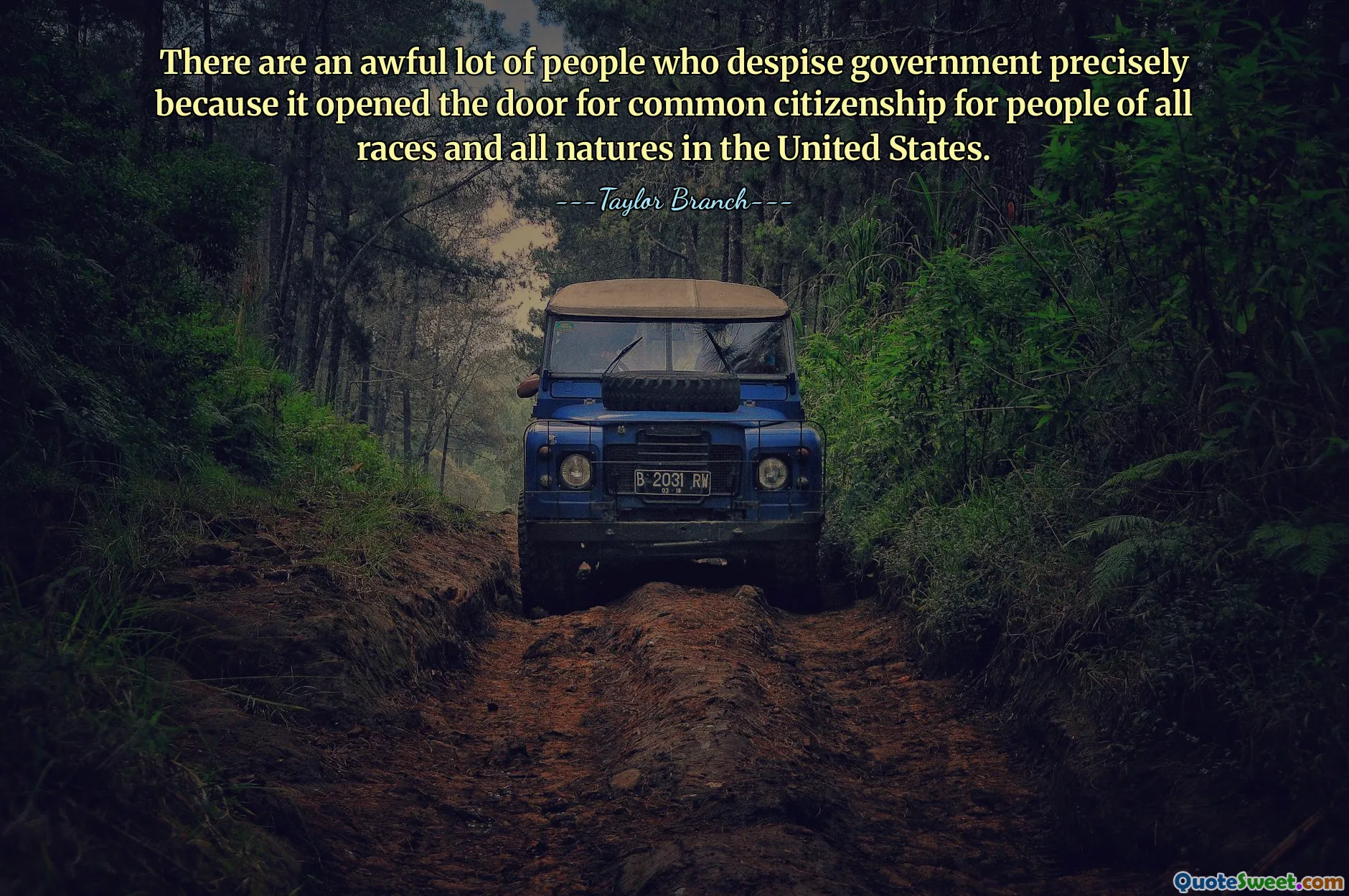
There are an awful lot of people who despise government precisely because it opened the door for common citizenship for people of all races and all natures in the United States.
This quote by Taylor Branch powerfully captures the paradox inherent in the response to governmental progress toward equality and inclusiveness. It highlights a critical truth about societal attitudes toward government action — often, resistance and disdain arise not from the nature of governance itself, but from the profound changes that such governance enables. In this case, the opening of citizenship to people of all races and diverse backgrounds is fundamentally a step towards justice and equality, yet it generates opposition from those uncomfortable with this inclusivity. It underscores a broader tension in democratic societies: balancing tradition and change, majority perspectives and minority rights.
Reflecting on this quote, one sees how government, while often criticized for bureaucracy or inefficiency, also plays an essential role as an agent of social transformation. The expansion of citizenship rights dismantled entrenched systems of oppression and exclusion, redefining who could belong and participate fully in the democratic process. The backlash described in the quote speaks to how deep and enduring prejudices can be and how progress is often met with resistance. It invites us to acknowledge the courage and perseverance necessary to advance civil rights and recognize the government’s potential as a force for inclusion when it embraces equity.
In a contemporary context, this observation reminds us that debates about the role of government often reflect underlying struggles over identity, power, and inclusion. It challenges readers to consider their own perspectives on citizenship and governance—whether they see government as a protector of rights or as an obstacle to be overcome. Ultimately, Branch’s insight encourages a more nuanced understanding of the complexities surrounding government and social reform.








